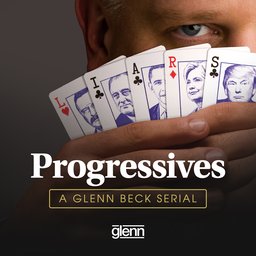Serial: Progressives - FDR I
Progressives
Watch The Glenn Beck Radio Program, Monday through Friday, 9am - 12pm ET on BlazeTV. www.BlazeTV.com/GlennFranklin Delano Roosevelt famously said, “The only thing we have to fear is fear itself.” He should have added one thing: progressivism.
The nation had scarcely regained its footing from the constitutional crisis created by FDR’s hero Woodrow Wilson, a man who oversaw the internment of over 170,000 American citizens without probable cause or due process. In subsequent years, FDR would follow Wilson’s blueprint, authorizing the physical removal of all Japanese Americans into internment camps.
FDR knew he could take Wilson’s revolutionary but academic critique of America and mold it into something practical and concrete. With the term “progressivism” waning in the 1920s under small-government Presidents Harding and Coolidge, FDR also knew he had a branding problem. This led to his purposeful rebranding of progressive ideology during the 1932 Democratic National Convention:
Ours must be a party of liberal thought, of planned action on enlightened international outlook and on the greatest good to the greatest number of our citizens.
It was a noble lie. FDR’s new liberalism betrayed the classic liberal thought of John Locke, Adam Smith and America’s Founding Fathers. This new interpretation of American politics and governance elevated the state above the individual. Rights no longer came from the individual, much less God, but directly from the government — everything that classical liberals had rejected about the divine right of monarchs and the state’s tendency to trample individual liberty.
In 3 playlist(s)
Glenn Beck
Watch The Glenn Beck Radio Program, Monday through Friday, 9am - 12pm ET on BlazeTV. www.BlazeTV.com…Social links
Recent clips

Best of the Program | Guests: Rep Thomas Massie, Rep. Chris Stewart & Ezra Levant | 2/5/20
1:00:45

Trump Redefined the SOTU | Guests: Reps. Thomas Massie & Chris Stewart | 2/5/20
2:08:26

The Glenn Beck Program | Hour 3 | 2/5/20
32:23
 Glenn Beck
Glenn Beck

